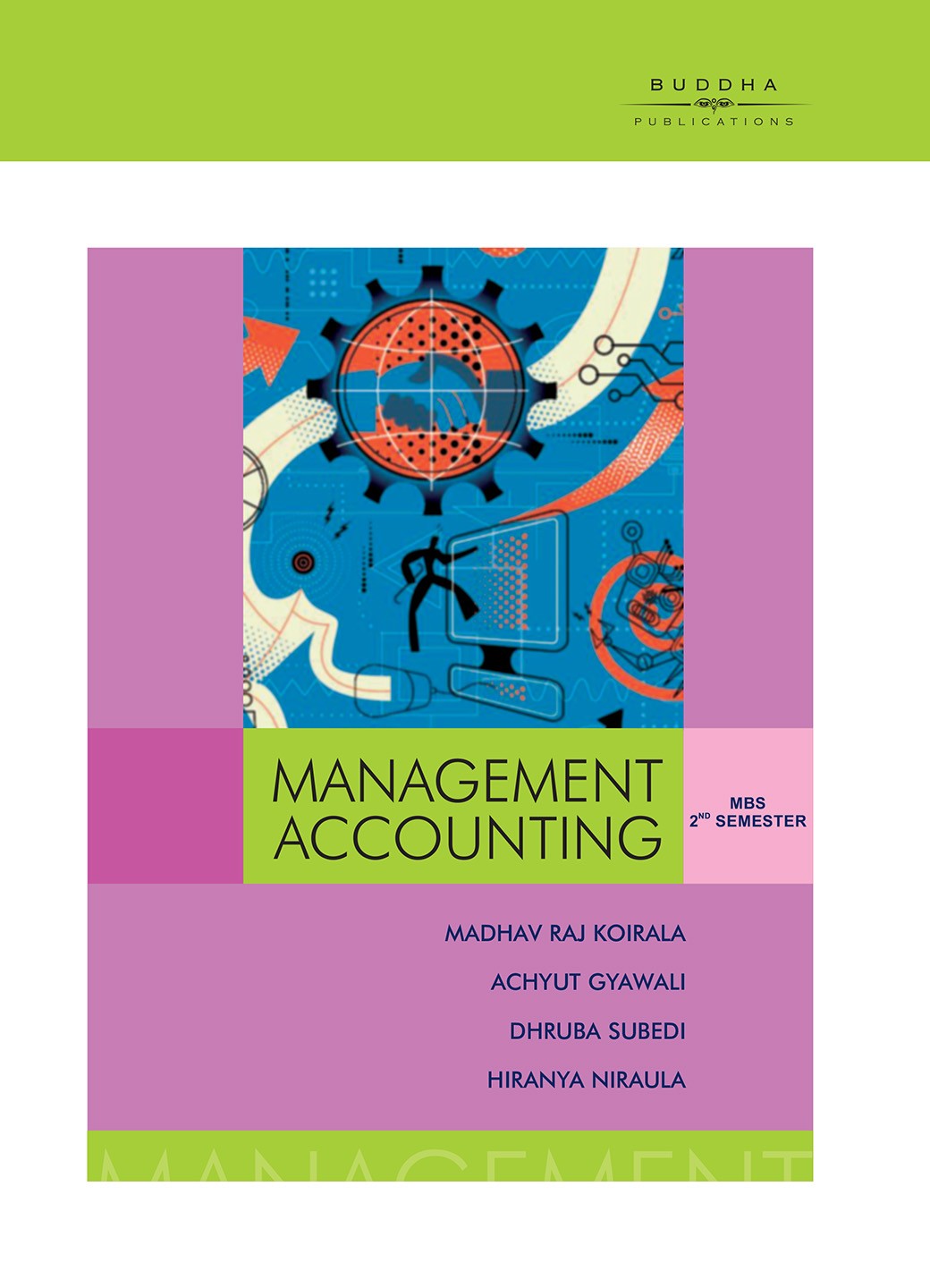
Management Accounting
Prof. Dr. Madhav R Koirala, Dr. Achyut Gyawali, Ghanendra Fago, Dhruba Prasad Subedi & Hiranya Niruala- ISBN: 9789937301114
- Version: English
- Price NRs. 795
- Published Year 2017
- Avaliablility: In stock
- University: Tribhuwan University
Today's organizations face more turbulent environment and intense competition than the organizations of the past due to increasing information explosion, rapidly changing technology, globalization, demographic changes, growing regulatory measures, and so on. In such a situation, they not only try hard for growth, but even for survival. Therefore, it is essential for the managers of these organizations to effectively and efficiently plan activities, organize resources, direct people and control operations to attain organizational goals and objectives. For all this, what is required them is the relevant information which is not fully provided by only traditional financial and cost accounting. Managers not only need information generated from financial and cost statements, but also information from forecasts, surveys, expert opinions, and so on. As a result, management accounting evolved as a branch of accounting which provides information specially tailored to managers for effectively and efficiently performing their functions. Recently, however, managers' tasks are becoming more strategic in nature due to changing environment and intensifying competition. Therefore, a transformation is visible from the traditional management accounting to innovative management accounting which is sometimes also termed as strategic management accounting.
The present book deals only with the traditional concepts and techniques of management accounting that are covered in the MBS syllabus of Tribhuvan University and MBA syllabus of Pokhara and Kathmandu University. It, therefore, presents the basic concept of management accounting and its nature, discusses the concept and types of cost useful for managerial decision making, deals with income recognition, measurement and reporting, and describes the techniques of CVP analysis, master budgeting, standard costing, flexible budgeting, decision making under alternative choices, price determination, investment analysis, value added analysis, ratio analysis and cash flow analysis.
Since this textbook is primarily written to cater to the needs of MBS and MBA students, we, therefore, hope that they will find the book worth reading and satisfying to learn the basics and advanced concepts and techniques of management accounting. We by no means claim, however, that the book is free from any error, but accept the fact that despite our meticulous and sincere efforts some errors might be inadvertently left. We promise to rectify them in the forthcoming editions. We, therefore, look forward to receiving the feedback from our valued students.